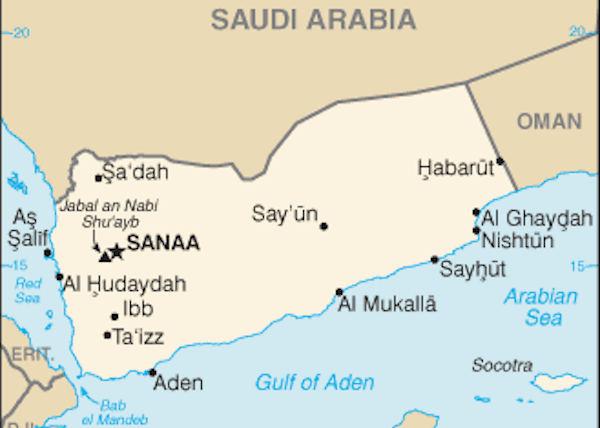Yesterday I did a post on Yemen and terrorism, and I filled it with many links to recent news stories about that topic, which had been heating up even before the failed Christmas Day airline bomber (nicknamed the “trust fund bomber” because of his affluent background) was connected to Yemen. What I wrote yesterday was
The Yemen connection, however, is most interesting to me because of how much news there has been regarding terrorist and rebel activities in Yemen over the past few months.
What I was thinking, but decided not to write, was that this connection and all the news about Yemeni terrorists really interested me because I wondered how soon some hawk in the US government would start demanding war with Yemen. I chose not to write it because it sounded like a conspiracy theory to me. Well, it didn’t take even a day for me to realize I wasn’t being unreasonable, even if the people making that case are being unreasonable.
Sen. Joe Lieberman (ID-CT), chair of the Homeland Security committee in the United States Senate, and always a super-hawk who wants to bomb anything that moves, has announced his support for direct, pre-emptive action in Yemen. Somehow, he is under the impression that this would prevent us being bogged down in a war there like we are in Afghanistan… I beg to differ, but that’s actually almost beside the point when you consider that the US is already providing logistical support to the Yemeni government against terrorists and has admitted to launching two recent cruise missile strikes in Yemen.
Lieberman also seems not to have noticed the longstanding Yemeni connection to terrorism until the past few weeks because he cited this attempted bombing and the Fort Hood attacks as justification enough for pre-emptive US action now. I wonder if he remembers that the USS Cole was bombed in the Port of Aden in Yemen in 2000? Incidentally, he also cited his position as deriving from a comment by someone in the administration, which is really odd since that person should have been able to tell him about the cruise missile strikes. However, as usual, Lieberman wants to take things that much farther and get the US more openly involved on the ground. I’m not sure how he thinks that will prevent war, since that’s kind of the definition of it.
Military force and enmeshing the US in foreign conflict zones are not the solutions to everything, no matter how excited and powerful they make Joe feel. I’m tempted to label the senator “Joe the Bomber,” but the reference is almost fading out of the political landscape fortunately.
UPDATE @ 10:30 PM: Actually, it sounds like he was even later to this parade than I’d realized myself:
In the midst of two unfinished major wars, the United States has quietly opened a third, largely covert front against Al Qaeda in Yemen.
A year ago, the Central Intelligence Agency sent many field operatives with counterterrorism experience to the country, according a former top agency official. At the same time, some of the most secretive Special Operations commandos have begun training Yemeni security forces in counterterrorism tactics, senior military officers said.
The Pentagon is spending more than $70 million over the next 18 months, and using teams of Special Forces, to train and equip Yemeni military, Interior Ministry and coast guard forces, more than doubling previous military aid levels.
However, he does seem to have been paying attention to the covert operations there, according to the article. So this makes it sound more like he’s just warmongering as usual and seizing on the new incidents to expand US operations in Yemen.
Unfortunately, I am now thinking that the writing is on the wall for serious US involvement there. Which is what I was really worrying about with yesterday’s post.
UPDATE II @ 5:40 PM on 12/28: See also my new post, “US ignoring Saudi link again,” now that Saudi-based al Qaeda operatives have claimed responsibility for this attempted bombing.
This post originally appeared on Starboard Broadside.





